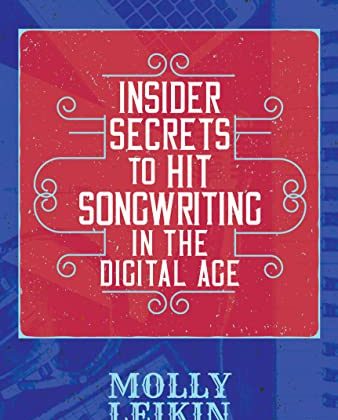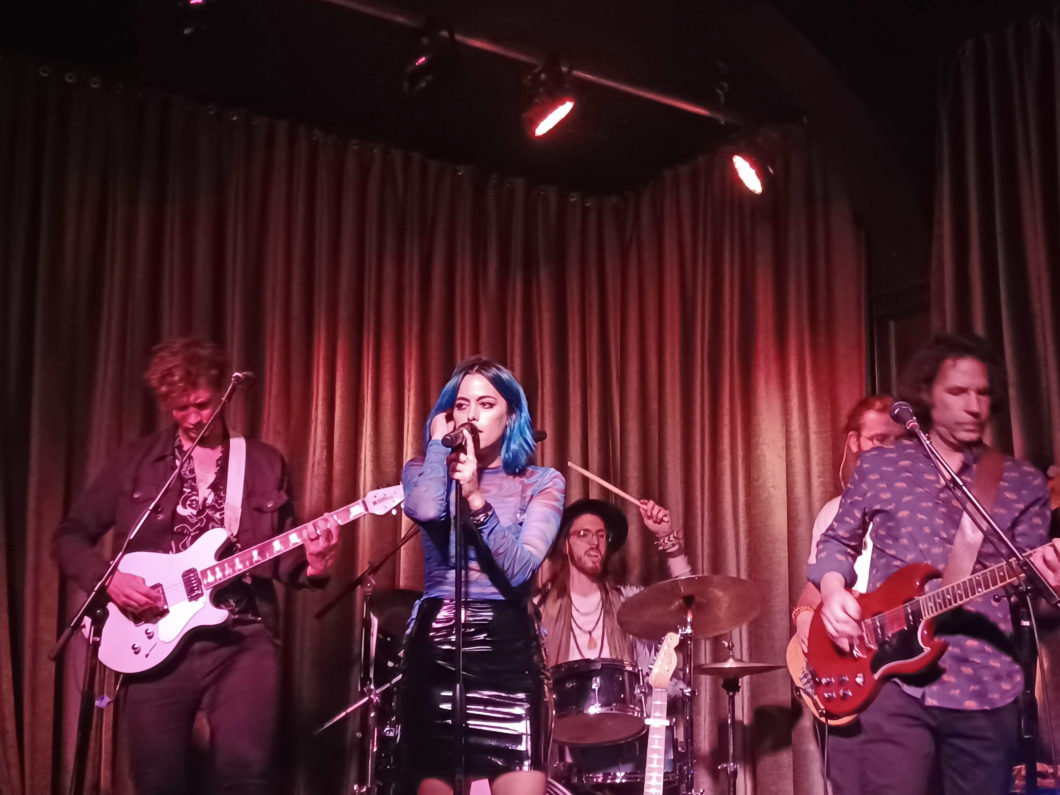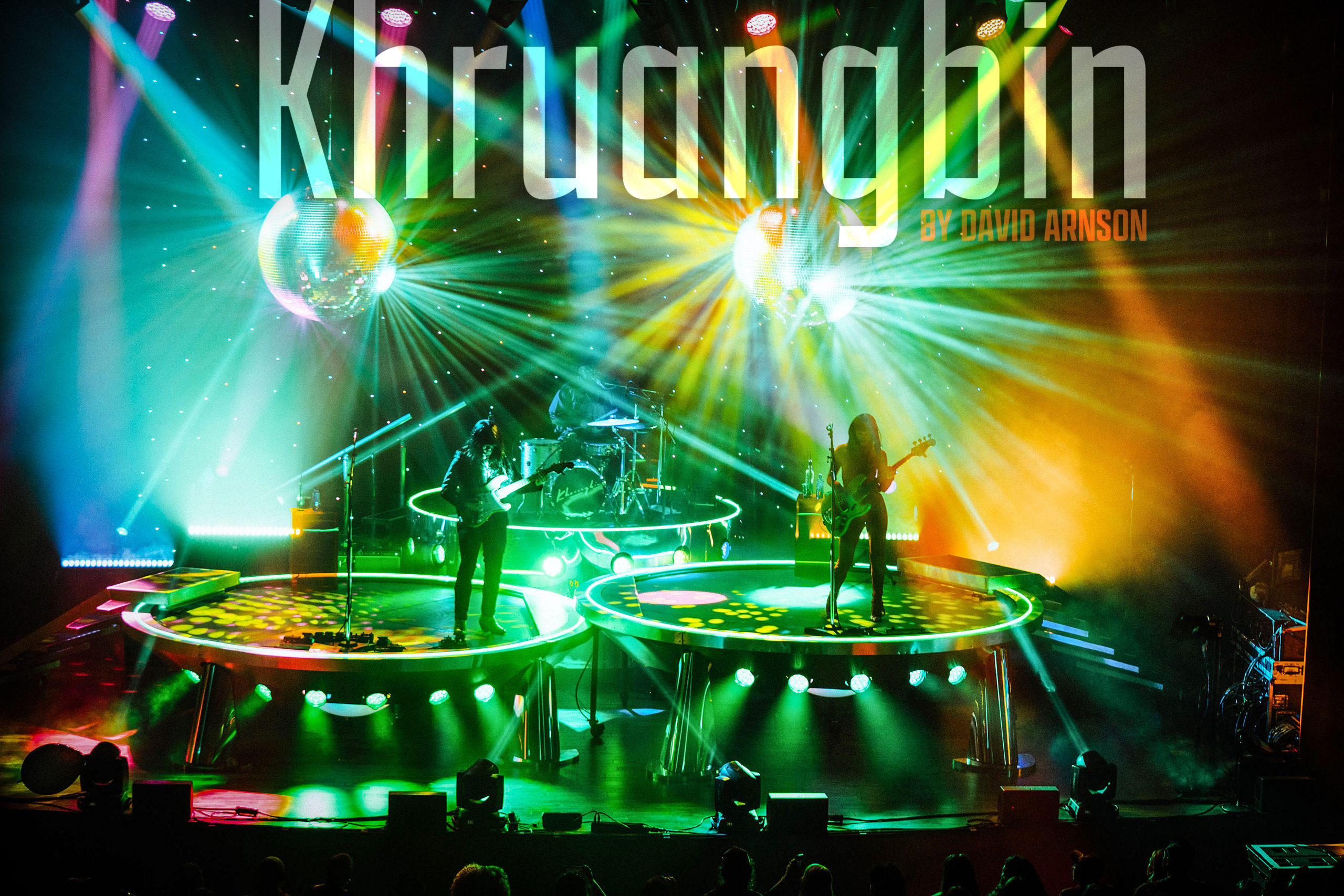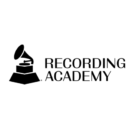In professional songwriter Molly Leikin’s new book, Insider Secrets to Hit Songwriting in the Digital Age, she taps into her own personal experiences to school her fellow songwriters, of all ages, on the do’s and don’ts of the trade. Here's a hefty chunk of wisdom from Molly's new book:
GETTING YOUR SONGS PUBLISHED
As a consultant to lyricists, songwriters, and singer/songwriters, I receive a hundred emails a week from new tunesmiths all over the world, saying they want to get their songs published. They also ask how much it costs.
This is what I tell them: a legitimate music publisher will not charge you to publish your work. Only scuzz buckets do. Steer clear of the latter.
WHAT PUBLISHING A SONG REALLY MEANS
When my first song was published, I expected to see shiny sheet music with a nice picture on the cover, but I learned that when a song is published, unlike a book, what a songwriter gets is a signed contract, and maybe a small check. Heavy on the maybe. Sheet music isn’t printed until later, when the song is a hit. At that point, a photo of the artist or band who recorded your song, making it a hit, will be on the cover. Your name will appear as well, but in small print.
No matter how small the font, you still get paid per copy sold. That amount varies from forty cents up. Everything is negotiable.
HOW DO I SELL MY SONGS?
Lots of new songwriters, singer/songwriters, and lyricists call me, saying they want to sell their songs. They don’t know that’s not how our industry works. Only sleezoids buy material, taking advantage of naïve writers who need instant gratification and recognition. And maybe ten bucks.
As in any business, there are scurrilous companies claiming to “buy” your work outright, but when you see one of their ads, as Tom Ganz and I wrote, “run away so fast you leave your shoes behind.”
Suppose you do sell a song for ten dollars. What if that song goes on to earn $10,000,000.00? Your name will never appear on the credits, or copyright, and you’ll never earn more than that initial ten dollars. EVER. No matter who you tell that it’s your song, nobody will care or believe you. No attorney will take your case. It’s over.
Don’t sell your songs. Instead, you get them published, and earn royalties.
You and your publisher are partners. They don’t make any money from your songs until you do. You’re a team. However, writers and publishers are often at odds. Publishers feel their writers demand instant placements and deals. Writers complain full-time when that doesn’t happen, and feel their publishers are not paying enough attention to them. It’s like being a middle child.
This debate will never end. However, once you, as a songwriter, make your first deal through the efforts of your publisher, everybody loves everybody again. You share limos to the Grammys, name your children after one another and then, when that positive wave subsides, go back to leaving dead possums on doorsteps.
HOW THE SONG ROYALTY PIE IS SHARED
Suppose a song is a circle, like a CD. Draw a line through the diameter. The top half is the songwriter’s share. The bottom half is the publisher’s share.
All new songwriters are desperate to find a publisher for their work. But there are publishers and there are publishers. You want a viable one, with recent hits and lots of current connections. A guy who placed a song on the B-side of a Snot single in the ’70s is not your best shot now.
Even when you connect with a good publisher, in the real music business, you and that person will probably be at odds soon enough. But writers and publishers need each other. A publisher is only as good as their new talent. And although you, as a tunesmith, may think you’re a hot shot and don’t require a publisher’s help, you do.
For the few years I published a handful of songs by very talented new artists, l got to see firsthand what a music publisher goes through. Although I placed 89 percent of these songs, when Miramax suspended production and froze all of their projects, there went my placements. My writers weren’t interested in the whys.
I’d get calls on my private, unlisted line, in the middle of the night, demanding lists of other projects to which I’d pitched their tunes. I was bombarded by texts and emails saying it had been four days since we signed our agreement, and where was their hit?
In the end, no matter how hard or long I’d pitched their material, or how many flights I took to meet with artists in Sugar Ditch, I simply returned the publishing rights to everybody’s songs, and that was that.
It’s tough out there, even with the hottest hustle and lifetime connections. So respect your publisher for trying to help you.
A SPECIAL THANKS
When somebody is especially nice to me, I send a handwritten note. It’s rare for anyone in the music business to get a “nice job” pat on the back. So my gesture is noted. Try it. You’ll be remembered as a good person, and that goes a long way in any business.
BILLBOARD
As a writer, it’s part of your job to know who publishes the hit songs/artists in your genre each week. You can find all that information on the Billboard charts. Subscribe to that magazine online and make it part of your business responsibility to know who did what. There is no fairy godmother who will do that for you. The schlemiels who pretend to be this miracle, really aren’t. So it’s on you until you’ve got enough momentum on your own, for a real manager, from a muscle company, who will bully their way into any deal for you. Before this happens, you have to prove to the manager that the time spent each day on you will be profitable in the short run.
So until you sign with a pushy, persistent manager, it’s your responsibility. And if you don’t do it, nothing will get done. Period. Don’t hire someone to do it for you. You’ll be sorely disappointed. Rev up your own hustle muscles.
While reading the chart in your genre, if you honestly feel you and your material are right for a particular publishing company working with a hit artist, contact someone there.
If the artist writes their own songs, don’t bother submitting material to that company. They probably won’t listen to outside material, let alone record it. Some artists are so lawsuit-prone, they’re advised by their attorneys never to listen to any else’s songs, especially someone they don’t know.
The best way in is to co-write, and be “invited into the room” while an artist creates new material. That usually won’t happen until you have some cred.
On the way there, be smart about submitting material. Before you go to the trouble of trying to penetrate an overloaded, cataclysmic publishing office, make sure all the acts they service aren’t what we call “self-contained,” recording songs they write for themselves.
Assuming a group in your genre doesn’t write all of its own material, contact the publisher of their latest hit, and find out who their professional manager is. That’s the person who placed their most recent hit with them. Check the correct email address with the receptionist. If she doesn’t trust you, tell her you need the information for some big shot (use a major player) for whom you’re temping, and need to update his/her address book. God will forgive you. Meanwhile, be very gracious to that receptionist. She’s hassled all day, every day, and can use a friend.
Practice your phone pitch over and over in your mirror. Record it and listen back. When you’re ready, your initial phone call will go something like this:
RECEPTIONIST
HOME OF THE HITS
YOU
Hi. Who am I speaking to?
RECEPTIONIST
Why?
YOU
I’m a hit songwriter. My name is Sonoma. What’s yours?
RECEPTIONIST
Please hold.
You’re on hold. Stay there. She’ll be back. Eventually.
RECEPTIONIST
HOME OF THE HITS. Hold on.
YOU
But…
Keep holding. Don’t get mad. Stay calm. The little lady has all of her lines flashing at once. Imagine being her.
RECEPTIONIST
Home of the hits!
YOU
Hi, I’m Sonoma, and you are?
RECEPTIONIST
The receptionist.
YOU
Right. And a very good one. But what’s your name? You sound like a nice person.
RECEPTIONIST
(softening a little)
Maple. Please hold.
You’ve got eight seconds left before your phone battery dies, but you keep holding.
RECEPTIONIST
Home of the hits!
YOU
Hi Maple. It’s me, Sonoma. I’m a songwriter with a hit for Maren Morris. Nobody else in town has heard it yet. Since I see in Billboard that your company published Maren’s last single, I’d like to meet with (the professional manager) and see if we can do business together and make some money.
RECEPTIONIST
Can you hold?
You’re re dying to strangle the woman, but you keep your cool. In a week she could be running the label. Don’t think that hasn’t happened.
RECEPTIONIST
Yeah?
YOU
Maple, like I said, I’ve got a hit song right here for Maren Morris and…
RECEPTIONIST
We don’t listen to unsolicited material.
YOU
This isn’t just another unsolicited tune. I met (professional manager) at the ASCAP workshop a few weeks ago and she asked me to call as soon as I had something for one of her artists. I’m a professional songwriter. And I’m good. Please, Maple, I’d like your help and cooperation in putting me through to (professional manager).
RECEPTIONIST
She’s in a meeting.
YOU
When can I call back?
RECEPTIONIST
She’s flying to New York in an hour. Two weeks there. Then Dar es Salaam. Plus the Yukon Territories.
YOU
Thanks for her itinerary. I appreciate that, Maple. I’ll give you a call a few days after she gets back.
RECEPTIONIST
Then she’s going to Sierra Leone and Guam.
You want to put your fist through a wall, but you bite your tongue, take a very deep breath, and cheerfully say you’ll call back again. And you do.
Eventually you’ll get through. As you listen to all the songs on the current top forty, realize those people finally got past the gatekeepers. So will you. Honest.
As you navigate the choppy waters of Musicland, make sure you’re dealing with legitimate professionals all along the way, and skip right over the grief. Save hard copies of all paperwork. I’d even suggest you put them in a safety deposit box. And never, ever trust anyone to do anything without a signed agreement. No matter what the deal is, get it in writing. If somebody you’re dealing with won’t do that, run the other way. Even a family member needs to sign paperwork. You can’t imagine the drama when writers have hits and their fourth cousins who died five years ago want in.
You don’t want to carry around a loser attitude for your whole career. Act like a winner, and you’ll become one.
PUBLISHING SCAMS
Any time you file a copyright with the Library of Congress, there are companies monitoring each filing. These disreputables send each new copyright holder a form letter, saying you have outstanding, genius potential as a songwriter, and they want to do business with you. They may also include a publishing contract for the title you just registered.
Pretty thrilling when you live in East Chuch[AW1] [ML2] [JH3] , and this is your first attempt at the business of music, right?
Wrong. It’s a scam. Tear up the “contract.”
To prove my point, from time to time, I send a lyric, with the full filing fee, for copyright, to the Library of Congress. This is what one of my recent lyrics said: “Whoa Whoa Whoa” for three double-spaced pages.
I got the same “genius” letter when filing the copyright for another of my original songs, called “Blank,” which was a blank page.
So beware of being “discovered” by companies with access to all the information floating around the Library of Congress copyright office. The employees are exemplary. It’s the scuzz buckets you need to avoid.
PUBLISHING GOLDEN EAGLE AWARDS
After pitching a song to an alleged song tip sheet, one of my clients, who was a radiologist, got a call in the middle of the night from a guy somewhere in the great unknown, saying my client had won a Golden Eagle Publishing Award for excellence in lyric writing. Really?
I called the company issuing the citation, and asked what the prize was. “Prestige,” I was told. “He can tell everybody he won a Golden Eagle, which will open a lot of doors.”
Not so much.
I called a dozen people I’d been working with in the music business, and nobody ever heard of this company or its glamor prize. Further, in order to attend the dinner, my client had to pay $2,500 for his meal, but he got a free listing in the catalog. Whoopie.
As my grandmother would say, you need a Golden Eagle Award like you need another hole in your head.
AVOID CHEAP MUSIC-FOR-HIRE COMPANIES
There are plenty of other scams out there. Legions of smarmy companies prey on naïve, frustrated lyricists by offering to write and produce inexpensive “melodies” for those lyrics, and even market the finished products. Not so fast.
On behalf of my clients, I’ve contacted most of these companies. What they offer sounds like a reasonable idea, but the reality is, the alleged original melodies are the same ones they sold thousands of times before, the singers are past their prime, sing flat and completely without feeling. None of the thousands of disappointed clients who have contacted me after the fact ever earned a penny. And all of these writers were offered the opportunity to be on a special compilation album, but only if they first coughed up thousands more dollars.
What?
You get what you pay for. If you pay $300 or $500 for a melody, that’s what your tune sounds like. Lots and lots of other writers will get the same cheap and derivative tune for that same price. But if you work with a real composer, with contemporary chops, in the real world, with current recording equipment, then you have a shot. Nobody’s looking for recycled songs, only original ones.
As a rule of thumb, if it sounds too good to be true, it probably is. I always urge my clients to check with me first before sending anything to anybody who charges publishing or inexpensive production fees in the music industry.
No matter what offer anybody makes, hire an entertainment lawyer in a major music city to review it for you, not a real estate attorney in The People’s Republic of Nope. In spite of the convenience of email, pick up the phone. Invest in your career. Pay the lawyer. Nobody is interested in how broke you are or how many hip replacements your chidoodle needs. Speak to your lawyer directly. Send the contract for personal review. FAQs aren’t going to do it for you.
Sometimes people posing as lawyers online, aren’t. They say, “Our firm represents…” That’s all well and good, but the firm could be engaged in a variety of nefarious activities that have nothing to do with copyright law, and everything to do with “headin’ upstate to do five to ten.”
GET IT IN WRITING
I assume you’ve heard the expression, anybody who represents himself has a fool for a client. It’s rampant everywhere, especially in the music business. Here’s the worst story I ever heard.
Here’s a case of how hiring an attorney could have avoided a catastrophe.
A former songwriting client decided to have a baby rather late in her life. She bought some eggs from a UCLA student, and sperm from a handsome artist. On her first try, she was pregnant. The baby was beautiful and healthy. Everybody loved her.
Much to our collective dismay, the first thing the songwriter did when announcing her baby’s birth was apply for and get welfare benefits, since technically, the baby’s father was “absent.” That, apparently, is legal in California.
The baby was adorable, never stopped smiling, and everybody goo goo’d over her. I even wrote her theme song. However, my client and the egg donor never had an agreement in writing. They “trusted the Universe” to take care of everything. Right.
The egg donor and the songwriter happened to meet by accident at a Paul Simon concert. The baby was a clone of the egg donor, who decided she wanted the baby. Myriads of litigating later, the daughter was returned to the donor. Since there was no written agreement and the songwriter was on welfare, without any other means of supporting the child, the tunesmith lost.
This fracas didn’t involve a song. It was much worse. From this example you can see what happens when you don’t memorialize your agreements in writing.
Songwriting is your life. Your songs are your children. Protect them. If you don’t respect them, you have no business claiming to be an artist interested in successful commerce. The cheapest answer is just that. It’s never the best. And certainly not the only one.
KEEP TRACK OF YOUR DEDUCTIONS
As soon as you start earning royalties, all expenses stemming from doing business in the music business, including production and attorney fees, are deductible from your taxes. Let’s hope your royalties are so large, you’ll need those deductions.
DEMAND YOUR FAIR SHARE
Lori Lieberman, an extremely talented artist and friend, who recorded “Killing Me Softly” as a teen, suggested the idea for that song to Charlie Fox and Norman Gimbel. She shared her notes, feelings, and experiences with Gimbel. But when the song appeared on her album, which Gimbel and Fox produced, her name was missing as co-writer.
When Lori insisted they do right by her and give her co-writing credit, they froze her out, but wouldn’t release her from their production contract. For four years, they prevented her from recording, publishing, or making production deals with anyone else. Gimbel and Fox had lots of money and power to fight Lori in court. She was new, and just getting by. It wasn’t fair. But that’s how the little guy gets squashed.
In the end, even though the song was recorded thousands of times, generating millions of dollars a year in royalties, Lori was never credited as co-writer of “Killing Me Softly.” However, the controversy never went away. And on the day Oscar-winning Norman Gimbel died, every obituary, in every news outlet on the planet, mentioned his dispute with Lori, instead of celebrating his extraordinary legacy.
Is that how you want to be remembered? Give credit where credit is due. Nobody’s gonna care if you get 1 percent or 80 percent of a hit song. All they’ll ever be concerned about is seeing your name on it.
My attorney, who negotiated my very first publishing deal, told me this: “I can’t get you out of anything I didn’t get you into.” Neither, by the way, can anybody else. -Molly Leikin
MOLLY LEIKIN is an Emmy nominee who has written with and for everyone from Katy Perry, to Cher, Tina Turner, Anne Murray, Billy Preston , Glen Campbell and more. She penned themes and songs for over six dozen TV shows and movies, including Violet, which won an Oscar. Leikin has mentored two generations of Grammy winners and nominees. She does private, personal, telephone consultations at songmd.com, and is the author of Insider Secrets to Hit Songwriting in the Digital Age.














